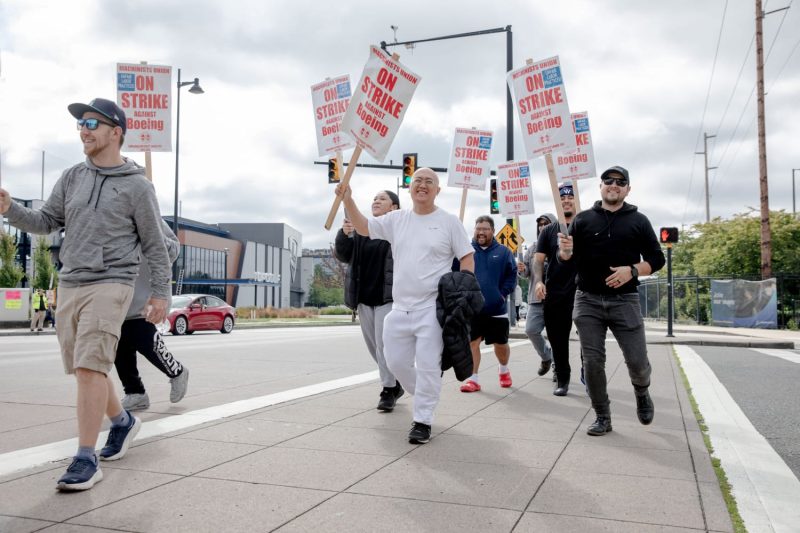Boeing Begins Furloughing Tens of Thousands of Employees Amid Machinist Strike
Unforeseen challenges have plagued Boeing, one of the world’s largest aerospace companies, as they confront the impact of a massive machinist strike. The recent decision to furlough tens of thousands of employees has created shockwaves within the industry. This strategic move to cut costs and manage resources amidst an ongoing labor dispute has raised concerns among stakeholders and observers alike.
The escalation of tensions between Boeing and its machinists stems from unresolved issues related to job security, wages, and working conditions. The strike, initiated by the International Association of Machinists and Aerospace Workers, has disrupted production lines and delivery schedules, causing a significant strain on the company’s operations. With both parties entrenched in their positions, finding a resolution to the conflict has proven to be an arduous task.
The decision to implement furloughs signals a critical moment for Boeing as they navigate the complexities of workforce management during a period of uncertainty and unrest. Tens of thousands of employees now face the harsh reality of temporary layoffs, adding further strain to an already volatile situation. The ripple effects of these furloughs extend beyond individual employees to impact the broader ecosystem of suppliers, contractors, and support services that depend on Boeing’s operations.
As Boeing grapples with the repercussions of the machinist strike and subsequent furloughs, the company is forced to reassess its long-term strategies and priorities. The financial implications of the ongoing dispute are significant, with potential ramifications for future projects, investments, and market competitiveness. Moreover, the reputational damage and loss of customer confidence resulting from production delays and workforce disruptions pose a formidable challenge to Boeing’s standing in the industry.
In response to these challenges, Boeing must adopt a proactive approach to crisis management and stakeholder engagement. Clear communication, transparent decision-making, and a commitment to resolving the underlying issues driving the machinist strike are essential steps towards restoring trust and stability within the organization. By listening to the concerns of employees, addressing their grievances, and working towards a mutually acceptable resolution, Boeing can pave the way for a more constructive and sustainable relationship with its workforce.
The road ahead for Boeing remains fraught with uncertainties and obstacles, but the company’s resilience and adaptability will be crucial in overcoming these challenges. By prioritizing the well-being of its employees, fostering a culture of collaboration and inclusivity, and demonstrating a commitment to upholding labor rights and fair working conditions, Boeing can emerge stronger from this crisis. As the aerospace industry continues to evolve and navigate turbulent waters, the ability of companies like Boeing to weather storms and emerge more resilient on the other side will determine their success in the long run.
